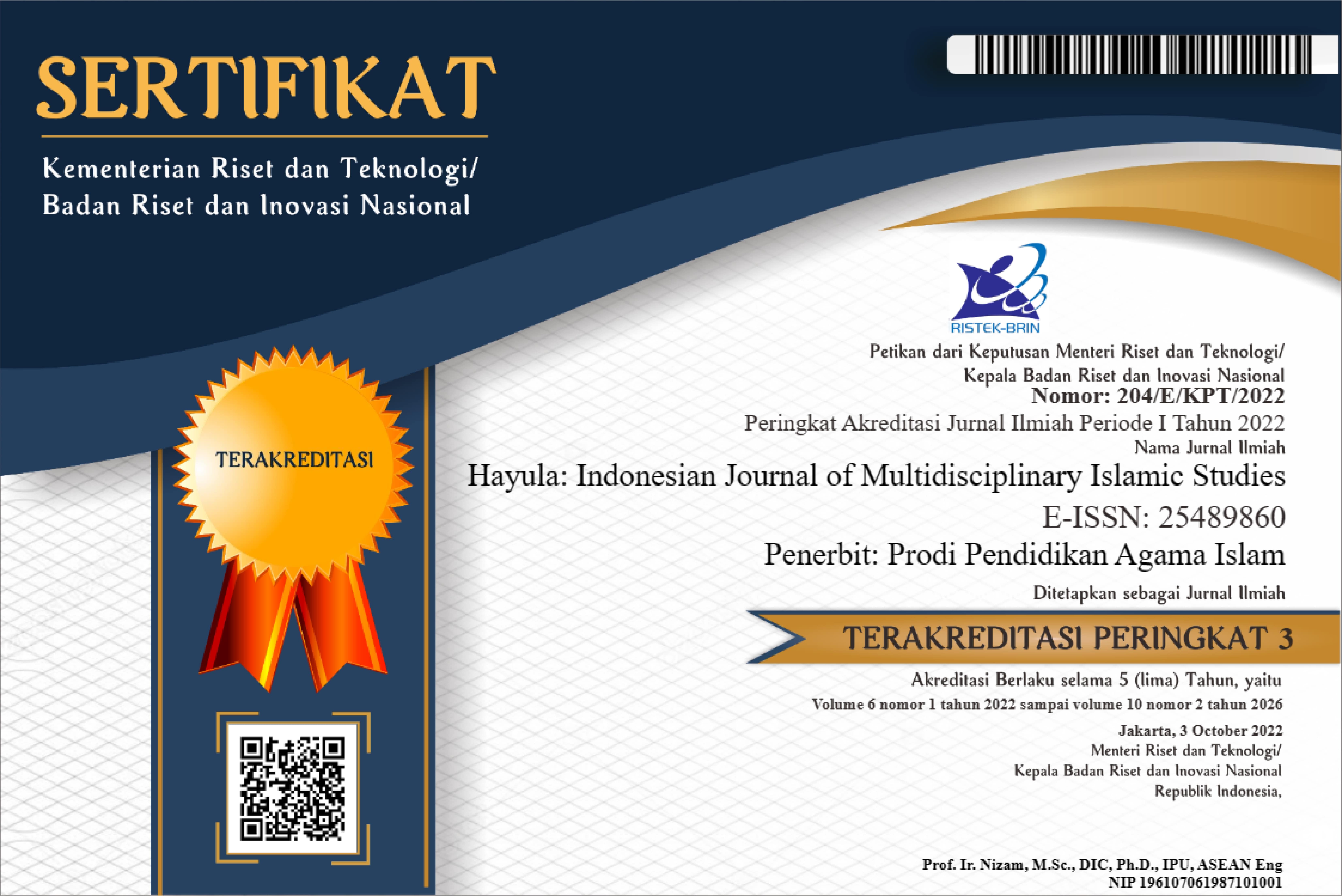Penerapan E-Learning dalam Proses Pembelajaran pada Program Studi PAI Universitas Islam Negeri Raden Fatah Palembang
DOI:
https://doi.org/10.21009/003.1.06Keywords:
Problematika, E-Learning, PAIAbstract
This study aims to describe how the application of e-learning in the learning process in the study program of PAI in UIN Raden Fatah, Palembang. This research is field research using a qualitative approach. The methods of data are observation, interviews, questionnaires, and documentation. There are five aspects of implementing e-learning that is observed by assessing the perceptions of lecturers and students. The results of the study concluded that First, there are differences of views between lecturers and students about the application of e-learning, only some lecturers have sufficient knowledge about e-learning applications, on the contrary, most of the students understand the application of e-learning. In the aspect of ease of use of e-learning applications, some lecturers said that they had difficulties in implementing e-learning, whereas most of the students said that they are able to implement e-learning. The other three aspects; the aspect of component of e-learning features, the usefulness of it, both lecturers and students assessing the positive and relatively good assessment, while they assessed less optimal about facilities supporting it.
References
Abdullah, M. (2003). Menyatukan Kembali Ilmu-Ilmu Agama dan Umum Upaya Mempertemukan Epistemologi Islam dan Umum. Yogyakarta: Suka-Press.
Creswell, J. W. (2013). Research Design Pendekatan Kualitatif, Kuantitatid, dan Mixed, Terj, Achmad Fawaid. Yogyakarta: Pustaka Pelajar.
Darmawan, D. (2013 ). Teknologi Pembelajaran. Bandung: PT Remaja Rosdakarya.
Hamalik, O. (2009). Kurikulum dan Pembelajaran. Jakarta: Bumi Aksara.
Jamun, Y. M. (2018, Januari). Dampak Teknologi terhadap Pendidikan. Jurnal Pendidikan dan Kebudayaan Missio, 10 (1), 1-136.
Kamarga, H. (2002). Belajar Sejarah melalui e-Learning: Alternatif Mengakses Sumber Informasi Kesejarahan. Jakarta: Inti Media.
Muzid, S., & Munir, M. (2005). Persepsi Mahasiswa dalam Penerapan E-Learning Sebagai Aplikasi Peningkatan Kualitas Pendidikan (Studi Kasus pada Universitas Islam Indonesia). Seminar Nasional Aplikasi Teknologi Informasi (SNATI).
Oey-Gardiner, M. (2018). Tantangan Pendidikan Tinggi Indonesia di Era Disrupsi dan Globalisasi. Seminar Nasional “Kesiapan Sumber Daya Manusia Indonesia di Era Disrupsi dan Globalisasiâ€, (p. 1). Bandung.
Rudito, P., & Mardi F.N. Sinaga. (2017). Digital Mastery Membangun kepemimpinan Digital Untuk Memenangkan Era Disrupsi. Jakarta: PT Gramedia Pustaka Utama.
Rusman. (2016). Model-ModelPembelajaran Mengembangkan Profesionalisme Guru. Jakarta: Rajawali Press.
Sanjaya, W. (2010). Strategi Pembelajaran Berorientasi Standar Proses Pendidikan. Jakarta : Prenada Media Group.
Downloads
Published
How to Cite
Issue
Section
License
Authors who publish with this Journal agree to the following terms:
- Author retain copyright and grant the journal right of first publication with the work simultaneously licensed under a creative commons attribution licensethat allow others to share the work within an acknowledgement of the work’s authorship and initial publication of this journal.
- Authors are able to enter into separate, additional contractual arrangementfor the non-exclusive distribution of the journal’s published version of the work (e.g. acknowledgement of its initial publication in this journal).
- Authors are permitted and encouraged to post their work online(e.g. in institutional repositories or on their websites) prior to and during the submission process, as it can lead to productive exchanges, as well as earlier and greater citation of published works.
Users/public use of this website will be licensed to CC BY






